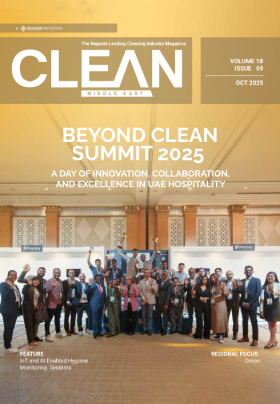
Sustainability in hospitality isn't just a trend; it's a crucial element reshaping the industry. It involves balancing economic, social, and environmental concerns to meet the needs of today’s travellers and guests without compromising the needs of future generations.
Let’s talk about environmental conservation
One fundamental aspect of sustainable hospitality is environmental conservation. Hotels consume vast amounts of resources, from water and energy to non-renewable materials. Implementing eco-friendly practices like water and energy-saving measures, waste reduction, and using renewable resources can significantly minimise the environmental footprint. Installing energy-efficient appliances and utilising renewable energy sources like solar panels are essential steps toward sustainability.
Recycling is the way forward
Recycling plays a vital part and starts with segregation of waste on guest floors, restaurants, kitchens and back-of-house areas. Here it is very important to work together with your local waste removal company. They can give great tips on how and what to recycle.
In housekeeping, linen recycling has been in place for many years. Cutting old bed sheets down into dusters is a well-known practice. But also, charities are happy to take on old linens, beddings and uniforms.
Are we sourcing responsibly?
Sustainable hospitality also embraces responsible sourcing. This involves procuring goods and services locally, supporting nearby communities, and using products with minimal environmental impact. From food and beverage offerings to amenities and furnishings, hotels can choose suppliers committed to ethical and sustainable practices, reducing the carbon footprint associated with transportation and supporting local vendors.
Community engagement - a neglected but pivotal aspect
Another critical facet is community engagement. Hotels play a pivotal role in their communities, and by engaging with local activities such as beach or community clean ups. This creates a positive social impact. Collaborating with local businesses and supporting community initiatives fosters a sense of belonging for guests and residents alike.
Are your guests educated?
Guest education is also important. Many travellers are increasingly conscious of their environmental impact and seek accommodation that aligns with their values. Hotels can educate guests about sustainable practices, encourage them to participate in conservation efforts.
The financial impact
Financially, sustainability in hospitality makes sense too. Initially, implementing eco-friendly practices might require investment, but in the long run, they can lead to significant cost savings through reduced utility bills, waste management expenses, and increased operational efficiency. Additionally, as sustainability becomes a focal point for consumers, hotels that embrace these practices often enjoy a competitive edge and increased customer loyalty.
The importance of sustainability in hospitality extends beyond individual hotels; it's a global imperative. The hospitality industry's collective actions significantly impact the environment. By adopting sustainable practices, it sets a precedent and influences other sectors to follow suit, contributing to a more sustainable future for the planet.
Sustainability in the hospitality sector is paramount. It's not merely about adopting a few green initiatives; it's a holistic approach encompassing environmental, social, and economic considerations. By embracing sustainability, hotels can reduce their environmental impact, support local communities, engage guests, cut costs, and contribute positively to the world. It's a pivotal shift that not only benefits the industry but also shapes a better, more responsible future for generations to come. Always remember, we only have one planet earth. Let’s make good decisions!
Sustainability training is crucial as it educates individuals and organisations about the principles and practices necessary to protect our environment. For many it is an eye opener on how to conserve resources and change behaviour for a more resilient future. Training promotes responsible decision-making that helps mitigate the impacts of climate change, fostering a more sustainable way of living and conducting business.
Take a Pledge! For a personal pledge, one can focus on reducing waste, conserving energy, or supporting eco-friendly practices in our daily life. For a group or organisation, the pledge might involve collective actions like implementing recycling programs, reducing carbon emissions, or promoting sustainable products and practices within the group's activities. What specifics are you considering for your pledge?
About the author:
Tatjana Ahmed is the Director of Housekeeping at Grand Hyatt, Dubai and the Chairperson of the UAE Housekeepers Association.

 (1).jpg)
.jpg)
 Search
Search.jpg)
